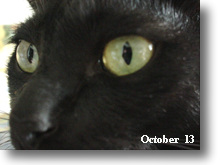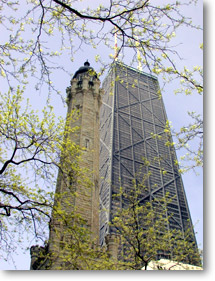A chit chat of topics from short sales to new lasting trends -and problems.
As expressed here recently, I for one remain still remain long term bullish on the Thai stock market.
One of these days, just when most will have given-up, there will be a reversal and the SET will charge upwards. It will happen when there is maximum frustration and or maximum boredom, by the traders and some investors alike. It will happen on a hot humid day when most of you will have tuned-out, by turning away. When most weak money will have whimpered out, due to being restless and bored, impatient and anxious, the next market rally can begin.
More nervous types will say "capital is made to work, not to sit around idle". on that day, a day of maximum utter despair, the SET will wake-up. Don't ask me when, just be ready...because I for one have not given-up and think patience is a virtue at this point, not a cop-out.
Markets like to shake the doldrums when its least expected of them. When the short term amateurs have given-up and when the news is terrible or plain boring. When the last weak capital has shaken loose, then the market rides higher. Like the Dragon who stays in the dark hole before surging ahead to new heights. What will the trigger be? Nobody knows, until it happens. I think we are getting closer but more frustration is probably needed; not enough have given up yet. I sure have not.
My two running model portfolio's are a good selection of stocks I still like and willing to hold on. Some stocks I treasure are not in the model, like Ocean Glass (91) or now on weakness BUMRUNGRAD HOSPITAL (61) and so it pays to read thaistocks.com on a regular basis. They may not be in the model because I view the selection as an accumulate buy, like BH or, because trading volume is so low like OGC, making it a more difficult stock for all of you to own. Low trading volume is a deterrent, but not an eliminating reason.
I will not update on every stock which make a price gyrations; as you all know : and yes, stocks do go down. I think you should look at your portfolio returns as the sum of all stocks, not as "why is this one is down". Fine tuning is fine, as long as you don't tune things out to fast. Here is the clear and present danger: giving up too soon and concluding a dog stock is a dog, just because the market price has faded down or latest reported earnings a touch less then expected. Over-reading news, like over trying, can be harmful for ones' health and wealth; now remains the time to mostly just hang tight. Like creating a piece of art, one can over try too hard and ruin it. Now is not the time to give up, nor to try too hard. Read some good books, go exercise if you want, visit an old friend and hold on to your good Thai stock values -without being glued to them! ***
Why growth and excitement will come increasingly from quality emerging markets. Fully developed countries have mature stock markets. Their valuations are high, their dividends are low and their long term growth rates are far less than half of Thailand, and its getting worse not better. In recent years we have also seen that these are no haven to less risk. Some of the worst investor scandals have been forthcoming from developed stock markets.
 The consumer markets in mature economies have ever more developed into "experience markets", where more and more people want to experience new things, rather then own more stuff. The new elite aristocracy in developed countries is the emerging creative economy. They identify themselves as creative beings who pursue pastimes and cultural forms that express and nurture creativity, not accumulation of materialistic possessions.
The consumer markets in mature economies have ever more developed into "experience markets", where more and more people want to experience new things, rather then own more stuff. The new elite aristocracy in developed countries is the emerging creative economy. They identify themselves as creative beings who pursue pastimes and cultural forms that express and nurture creativity, not accumulation of materialistic possessions.
Further, the average age overall, as well as the average marriage age, is older besides couples are having less children than in developing countries. All this does not hold well for high GNP growth for these countries in the long run. Years ago the elites bought vast mansions and expensive toys for show, today they ride mountain bikes for exercise and take trips around the world. Of course I am generalizing, but there is a huge new trend in force.
The new powerful and well to do creative class promote more international travel, retiring abroad, spending discretionary money on global experiences, rather than just new stuff or baseball games.
In a 1995 study on how Americans spend their increased free leisure time over the past 30 years, exercise, continued education and international travel showed to be the fastest growing incremental change, compared to all other activities. Sports watching surprisingly came in below average. The rising new power class want to indulge in challenging and interesting new experiences, not just watch life go by in comfort. The past few decades has seen a virtual revolution in active recreation and involved experiences -and international travel is one key feature of this trend.
The new creative class (the new elites of the developed world), do work hard, but they are not anymore primarily income or materialistic oriented. Realize this class is now the largest work force in America. Income wise, surpassing both the service and the working class.

This new power-group (by far the new dominant & wealthiest group) want to see and experience the real world, invest in what and where they believe -and treasury creativity and experiences more then security.
These are some of the mega forces which in my view bode well for higher growth, better stock valuations and more long term bull market potential for a place like emerging Thailand.
****
There are many negative factors as well, of course. Here I identify two of them which I consider both major:
1) one recent emerging trend is the continued unrest in the South of Thailand, leading to new violence and chaos. Mr. Taksin has no experience dealing with the south and this region is angry over the political inroads the new administration has made. Terrorism related activity (which it now is called) does not ring well mixed in with the little international business news foreigners get at home.
2) When CBS Market Watch called me a few months ago asking what is the single biggest negative is in Thailand, from thaistocks.com, point of view I answered them in 2 1/2 words, namely: Thai-broker behavior.
Local broker behavior, to be blunt and to generalize, is just terrible for the most part. The SET has a gambling/casino reputation -and the local brokers have helped create and maintain this monster. The SET/SEC authorities are too weak and undetermined to change this, and no other sources are at work to propel it out of this long rut. Thaistocks.com is a lonely voice here.
I have said enough of this in previous articles here, suffice it to add today that the masses (the silent majority of savers) are sadly staying out of the local stock exchange, only due to this perceived reality of the SET being a casino.
Why has the SET with its various investor fairs to date (i.e. SET in the City) not taken a more sanguine view and real action on this? Why have they not created an alternative index to the SET50 and the SET benchmark? Why don't they allow 2 separate broker accounts per client, at one broker firm? one for trading and one for long term investing? Co-mingling the two is a disaster.
Why don't they enforce the "know your customer rule" and "investor suitability" norms?
Marketing officers, like professional lawyers, doctors and dentists, should learn how to build a business book and so attract assets, not trade for short term punt. They should not be allowed by management to nurture a trading galore den with a few hot shot accounts. By attracting serious long term investors, they so build a long-term viable business, rather then a short term trading desk of less than loyal gamblers. The SET with its pervasive trading induced volatility may never achieve a decent average p/e ratio, as its too volatile, and volatility is risk, and so this penalizes stock market valuations. I say: retire a few old timers who won't learn the new way and teach the new marketing officers how to build a book of long term investors, not traders. Then promote independent research galore, just as they are now doing in the US.
One old negative I do not mention is the chicken flu. As I do think the worst is over on this and soon Thailand will be declared a chicken flu free zone. I dare to predict.
***

On short sales. I.E. Making money when a stock goes down.
I have recently been asked what about short sales? This practice used to be forbidden here but recently without any announcement (that I saw) it became allowed on certain stocks. More than a few large cap stocks can now be legally sold short on the SET (meaning making gains, when a stock goes down in value, not up).
For a short sale, the customer anywhere, must have a margin account in place, this is standard practice. But foreigners are not allowed to have margin accounts in Thailand, for fear as I was told that "they may not be able to be contacted if the stock moves up sharply". Evidently the brokers still don't know or respect the "force sell" rule, in margin accounts. Accounts are market-to-market, everyday; should a margin call be triggered the client must be contacted, if the client cannot be contacted within a short time, then the force sell rule dictates that the stock is bought back or sold out, so to cover the margin call. Nothing too odd about that? But in Thailand no short sales are allowed if you are a foreigner. This according to Bualuang Securities.
Today my main message is keep (mostly) your high dividend shares dear, don’t get inpatient if the market is boring. The fundamentals are in place, interest rates remain low and overall things do still look positive. Strong long term trends favor bullish Thailand, all other things staying equal.
Even while brokers could be a more professional bunch by evolving for the better, the Taksin government could force these to promote more long term investing. And we must hope the troubles in the South can be contained as its ruining the generally peaceful reputation of this economic booming Kingdom.
As always, diversify your portfolio and consider these my views only which I here share with all members.
Best Regards,
Paul A. Renaud.

